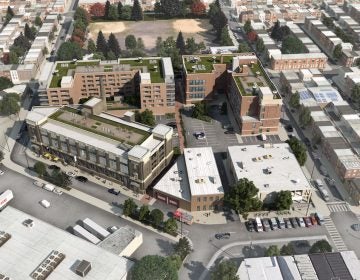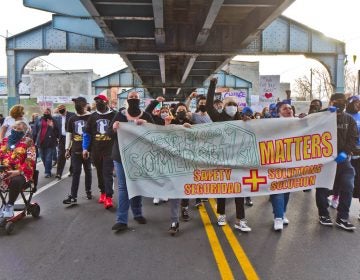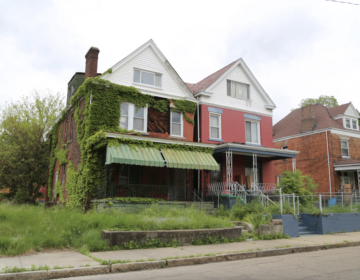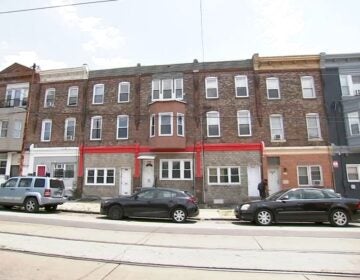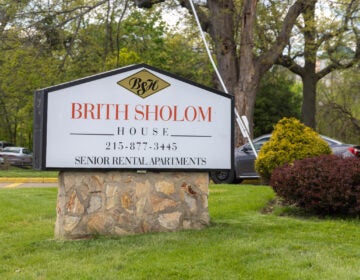When the pandemic ends, Philly must retain eviction prevention
Lauren P. McKenna, Catherine Carr, and Joseph A. Sullivan urge the city to invest $3 million in eviction prevention funding to contain the housing crisis.
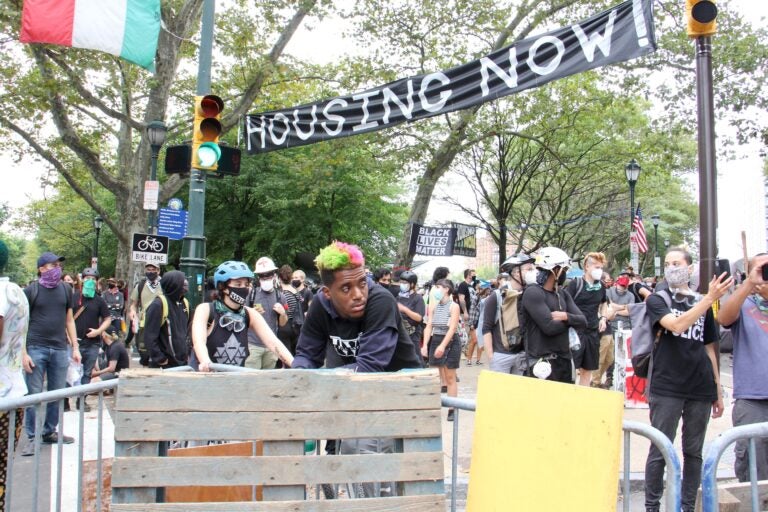
Protesters wait behind blockades to defend the Parkway encampment in September. (Emma Lee/WHYY)
The COVID-19 pandemic has harmed us all, but it has been especially catastrophic for some of Philadelphia’s most vulnerable residents. Philadelphia has the unfortunate designation of being one of the poorest big cities in the United States, with many residents just one crisis away from facing joblessness, homelessness, or insurmountable debt.
One of the bright spots to emerge from this current, unprecedented pandemic is the way groups from across the city have come together to address the eviction crisis. Even before COVID-19, the city was averaging 19,000 eviction filings per year.
In Philadelphia, households headed by Black women with children are most likely to face eviction-forced moves, exacerbating racial disparities. This has continued during COVID-19, with 49% of eviction filings occurring in majority-Black communities and 78% occurring in communities of color.
With the help of the courts, the legal community, and nonprofit partners, the city moved quickly and decisively last year to provide essential aid to both landlords and tenants. City Council passed the Emergency Housing Protection Act as a response to COVID-19 and built a successful Eviction Diversion Program.
It also provided ongoing critical funding to enable the highly successful Philadelphia Eviction Prevention Project (PEPP) to continue providing eviction prevention services throughout the pandemic.
Through a collaboration of six agencies (Community Legal Services, Clarifi, Legal Clinic for the Disabled, SeniorLAW Center, TURN and Philadelphia VIP), PEPP provides free legal representation to low-income Philadelphians, an in-court help center, a tenant helpline, financial counseling, a website, and community education.
The data shows that over the past three years, 95% of the tenants helped by PEPP have successful outcomes for their families: They are more likely to win their cases, avoid default judgements, and enter into agreements that avoid disruptive displacement than unrepresented tenants.
Over the past year, PEPP has helped 8,467 low-income tenants avoid homelessness. Now, PEPP and Philadelphia’s Eviction Diversion Program have been nationally recognized as a model by the Urban Institute.
Although effective COVID-19 vaccines are widely available and hope is on the horizon, now is not the time to pull back on these efforts. Indeed, Penn Medicine recently released a study showing that preventing evictions remains “critical” to controlling COVID-19. And many expect an onslaught of evictions to be filed in the coming months as moratoriums come to an end.
Unfortunately, the Mayor’s current budget proposal cuts funding for PEPP nearly in half, from $1.8 million to $931,000.
With the influx of federal stimulus funding, the city is in the position to continue to take bold steps to ensure that the negative impact of the eviction crisis and the pandemic on our communities is not further exacerbated by cutting critical legal and supportive services for low-income tenants.
We urge the city to continue the momentum it has built by investing $3 million in eviction prevention funding: $1.8 million to maintain funding for PEPP and $1.2 million to begin implementing City Council’s 2019 passage of a right to counsel for tenants facing eviction.
The Philadelphia Bar Association and members of our Civil Gideon and Access to Justice Task Force have long advocated for a right to counsel for low-income tenants.
Like the efforts of PEPP, right to counsel is a life-saving service for renters. It also makes financial sense – our groundbreaking 2018 study, the Stout Report, found that the city could save millions of dollars a year by funding counsel for eligible low-income tenants.
Evictions destabilize individual households and entire communities, worsening the cycle of generational poverty and exacerbating systems of racial injustice that plague our city and our society.
As we emerge from a global pandemic, Philadelphia has a chance to establish itself as a national model for implementing a more equitable and humane process for handling evictions.
Cutting funds for PEPP represents a step back. We must keep moving forward and continue to harness the power that comes when our community works together to achieve a shared goal.
Lauren P. McKenna is chancellor of the Philadelphia Bar Association. Catherine Carr and Joseph A. Sullivan are co-chairs of the Association’s Civil Gideon and Access to Justice Task Force.

Get daily updates from WHYY News!
WHYY is your source for fact-based, in-depth journalism and information. As a nonprofit organization, we rely on financial support from readers like you. Please give today.


